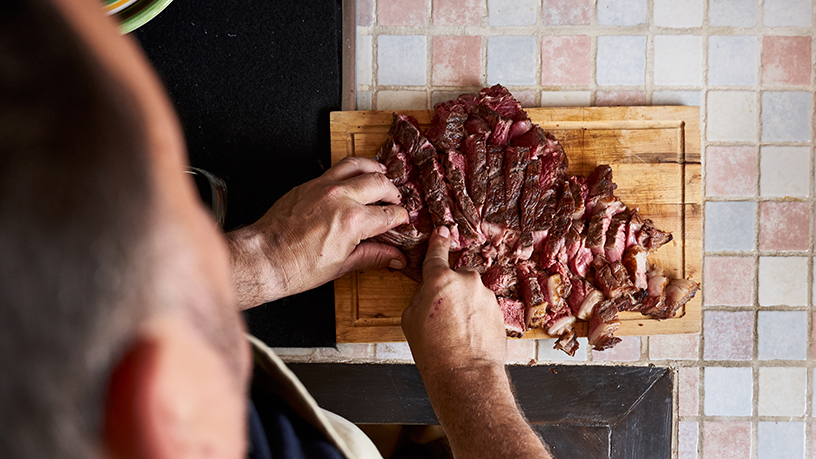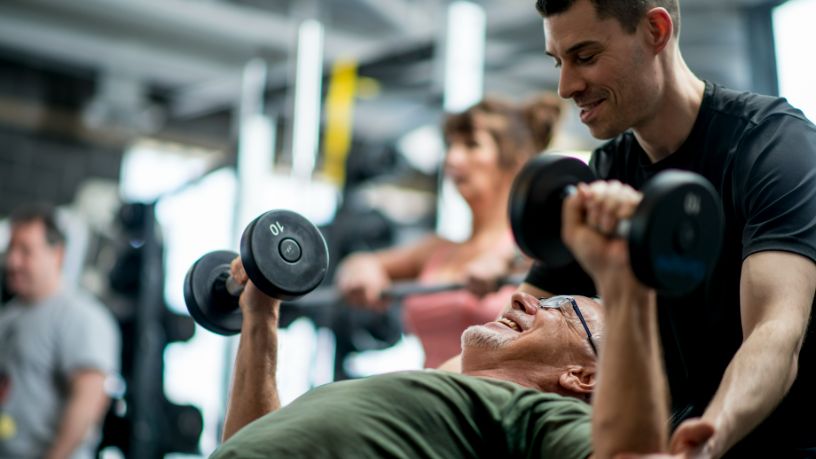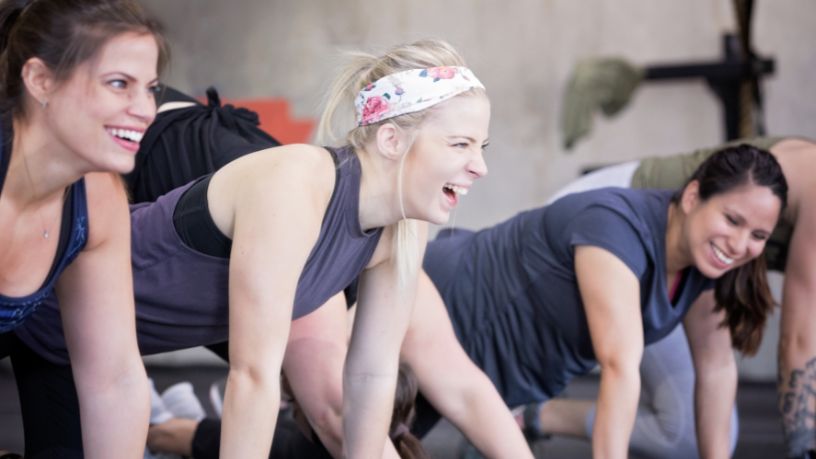On this page
Key takeaways
- Protein comes from a variety of plant and animal sources, mix it up to get the most benefit.
- Aim to eat protein regularly throughout the day in 25–30 gram portions to support muscle maintenance and overall health.
- Include a protein source at every meal to easily reach your daily protein goals.
From smoothie bowls to snack bars, protein is being hailed the new health hero.
It’s not just a trend; protein helps fuel everything from muscle growth to hormone production and overall health.
But a high-protein label, doesn’t automatically mean it’s good for you.
Bupa Dietitian Riley Kusuma shares 5 ways to boost the right kind of protein in your diet.
How much protein do I need?
There’s no one-size-fits-all answer here, it really depends on things like your age and gender.
As a general rule, adult men should aim for about 0.84 grams of protein per kilogram of body weight, while women need a little less, around 0.75 grams per kilogram.
If you’re over 70, pregnant, or breastfeeding, your needs go up a bit to roughly 1 gram of protein per kilogram of body weight, to keep your body fuelled and strong.
What are good sources of protein?
Protein comes from both plants and animals, you’ll find it in meat, dairy, nuts, seeds, beans, and legumes.
Protein is made up of building blocks called amino acids, and there are 20 different kinds.
Some are “essential,” which means you have to get them from your food because your body can’t make them. The others your body can produce on its own.
Animal proteins have all 9 essential amino acids. Some plant proteins, like soy, do too, but nuts and beans don’t have them all.
How can I eat more protein in my diet?
“The first priority when it comes to protein is to make sure you’re eating enough every day,” says Riley. “If increasing muscle mass is one of your goals, consuming 25-30g of protein every few hours is considered optimal.1”
Here’s how to eat enough protein throughout the day:
1. Start the day right
2. Have a source of protein at each main meal
3. Make snacks protein rich
4. Sprinkle some nuts and seeds
5. Supplement if you need to
Watch out for ‘high-protein’ labels
Just because a food says it’s ‘high-protein’ doesn’t always mean it’s a healthy choice. Some high-protein snacks and bars can be loaded with sugar, salt, unhealthy fats or artificial additives, so if you choose to have them, choose carefully.
When boosting your protein, aim for whole foods or minimally processed options first, and be mindful of packaged products that might pack a protein punch but come with hidden downsides.
Which foods are high in protein?
“Try to get your protein from a variety of sources,” advises Riley.
Mixing up your protein options not only keeps meals interesting but also ensures you get a wide range of other nutrients.
Protein-packed foods to include in your diet:
- Lean meats: Chicken, turkey, and lean cuts of beef are all excellent sources of high-quality protein.
- Fish: Salmon and tuna not only provide protein but also healthy omega-3 fats.
- Shellfish: Oysters, prawns, and scallops offer a protein boost with fewer calories.
- Nuts and seeds: Almonds, walnuts, peanuts, and pumpkin seeds are tasty and portable protein sources, plus they add healthy fats and fibre.
- Beans, peas, and lentils: Chickpeas and lentils are plant-based protein powerhouses that also supply fibre and important minerals.
- Dairy products: Yoghurt, cheese, and milk provide protein along with calcium for bone health.
- Soy products: Tofu is a versatile plant protein that contains all nine essential amino acids, making it a great option for vegetarians and vegans.
Including a mix of these foods in your meals and snacks can help you hit your protein goals without getting bored.
Need some advice?
Call us on 1300 030 238 (Mon-Fri, 9am-5pm AEST) to speak with one of our health professionals or register for a call back to find out what programs are available to you.

At Bupa, trust is everything
Our health and wellbeing information is regularly reviewed and maintained by a team of healthcare experts, to ensure its relevancy and accuracy. Everyone's health journey is unique and health outcomes vary from person to person.
This content is not a replacement for personalised and specific medical, healthcare, or other professional advice. If you have concerns about your health, see your doctor or other health professional.
You might also like
Protein power: 4 key benefits
From increasing muscle mass to keeping, you fuller for longer, protein is an essential part of your diet.
Strength training: What you need to know
Starting a fitness journey can be overwhelming, especially when you’re trying something new. Discover the basics and benefits of resistance training.
How to prevent osteoporosis when you’re young
Osteoporosis weakens bones, affecting quality of life as we age. Learn how to reduce your risk in your younger years.
What causes osteoporosis and how to lower your risk
Osteoporosis occurs when your bones break down faster than they can repair themselves. Learn the causes, symptoms and treatment options for this common condition.





